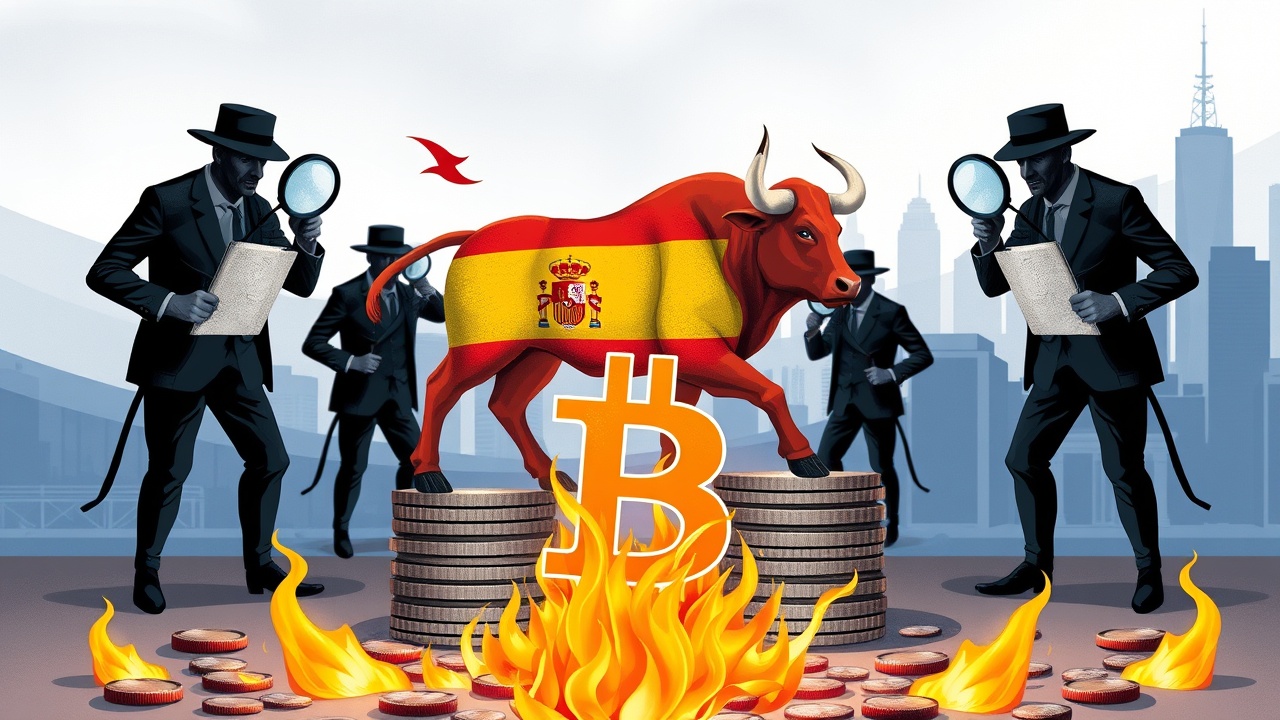Update: Important Clarifications on Spain’s Royal Decree 253/2025 Regarding Cash Withdrawals
As of May 10, 2025, a significant miscommunication regarding Spain’s Royal Decree 253/2025 has been clarified. Earlier reports erroneously indicated that individuals in Spain were obliged to notify tax authorities at least 24 hours in advance before withdrawing more than €3,000 in cash, with a potential fine of up to €150,000 for noncompliance. However, upon thorough investigation including official texts and independent fact-checks, it has been established that the responsibility for reporting lies with banks and financial technology firms, rather than individual customers. The steep penalty applies solely to institutions that fail to adhere to the new regulations.
Origin of Misunderstanding
The initial rumors stemmed from an April 28 article in Madrid Informa, which gained traction through various English-language blogs and a syndicate by Fintechnews CH. A comment thread initiated by CitizenX’s CEO, Alex Recouso, further amplified the misinformation, leading to heated responses from influencers like podcaster Peter McCormack. Unfortunately, original sources, particularly the Boletín Oficial del Estado (BOE) that published the law, weren’t cited in these discussions.
Key Provisions of Royal Decree 253/2025
This decree amends several articles of Spain’s General Tax Management Regulations and introduces a new clause. Notable requirements include:
- Financial institutions, including banks and e-money providers, must now submit monthly reports detailing cash movements—deposits, withdrawals, loans, and account balances exceeding €3,000—and merchant card payments without the previously established annual threshold.
- Annual reports detailing card transactions must be provided unless a card’s activity is below €25,000 annually.
- The obligations apply to foreign fintechs offering services to Spanish residents.
- This overhaul shifts the filing of data from an annual to a monthly basis, effectively reducing the risk analysis timeframe for the tax agency from one year to approximately 30 days.
Clarifying the Misconceptions
Fact-checking organization InfoVeritas has confirmed that there is no requirement for individuals to pre-notify cash withdrawals as proposed in earlier articles. The only obligation is placed upon financial institutions to report cash transfers over €3,000 in their returns. There is no provision within Royal Decree 253/2025 that mandates individual consumers to wait or formally report before accessing their personal funds.
The cited €150,000 penalty is applicable exclusively to entities that fail to accurately submit their reports or provide false information. This penalty reflects a percentage of their annual revenue under Spain’s graduated sanction system, making it irrelevant to individual customers.
Implications for Spaniards and Privacy Advocates
Despite the lack of a pre-notice requirement, the decree substantially increases data-sharing, allowing the Spanish tax agency to access detailed and timely information regarding most sizable cash transactions and card activities. Privacy advocates express concerns that this extensive data collection undermines civil liberties, while proponents of cryptocurrencies, like Bitcoin, view this as encouraging a shift toward self-custody financial solutions. Recouso’s assertion resonates within the crypto community, stating:
“When state authorization is required to access your money, it’s no longer your money.”
Aligning with Broader EU Trends
Spain’s legislative changes also mirror the European Union’s draft proposals aimed at tightening anti-money laundering measures. Upcoming regulations propose limiting cash transactions across the EU to €10,000 and implementing mandatory transaction-monitoring technologies. Other EU nations like Italy and France already have similar cash transaction limits.
Conclusion for Spanish Account Holders
Spanish residents remain free to withdraw amounts like €3,001 without prior notice, although they might face identity verification and inquiries from their banks. Consequently, the banks are responsible for reporting these transactions to the tax authority. While penalties primarily target financial institutions for any lapses in reporting, the new law signals a significant reduction in financial anonymity given ongoing shifts in regulatory practices worldwide. In the wake of this regulatory tightening, the appeal of cryptocurrencies as decentralized assets continues to grow, shaping the narrative of “be your own bank,” particularly as misinformation decreases.




